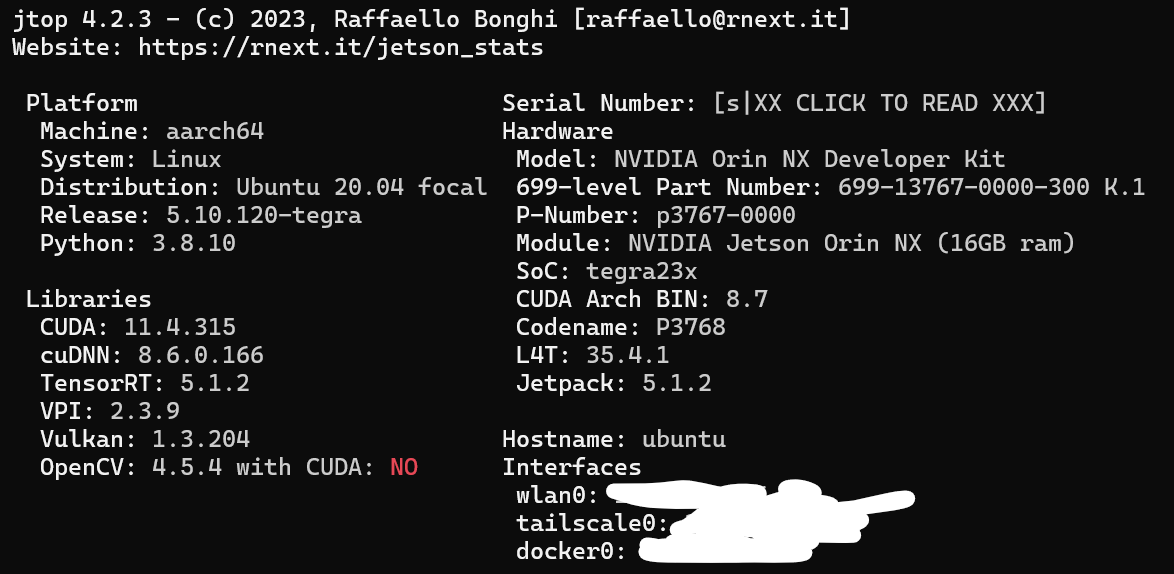Hello
I am recording videos (lossy H265) on Jetson Orin NX 16GB
using the following code
https://github.com/stereolabs/zed-sdk/blob/master/recording/recording/mono/python/svo_recording.py
After that I need to perform extraction to an .avi or .mp4 file while applying rotation and blurring of the faces (anonymization) using built-in body tracking (head position). Unfortunately on Jetson Orin NX it takes enormous amount of time (up to x10-15 of the original video duration).
Based on a basic profiling most of the time takes actual encoding. In the official ZED SDK sample cv2.VideoWriter_fourcc is used. I tried to use ffmpeg and Python pipes to speed up the process but it didn’t end with any significant performance boost.
What are the most optimal params for ffmpeg to use Jetson hardware acceleration for video extraction from .svo files ? Is there an alternative way of doing that ?
works but runs entirely on CPU which is very slow
ffmpeg_process = sp.Popen(shlex.split(
f'ffmpeg -y -s {rotated_width}x{rotated_height} -pixel_format bgr24 -f rawvideo -r {svo_fps} -i pipe: -vcodec libx265 -pix_fmt yuv420p -crf 26 {deided_mp4_filename}'),
stdin=sp.PIPE)
doesn’t work
# ffmpeg_process = sp.Popen(shlex.split(
# f'ffmpeg -hwaccel cuda -y -s {rotated_width}x{rotated_height} -pixel_format bgr24 -f rawvideo -r {svo_fps} -i pipe: -vcodec hevc_nvenc -pix_fmt yuv420p -crf 26 {deided_mp4_filename}'),
# stdin=sp.PIPE)
Thank you
